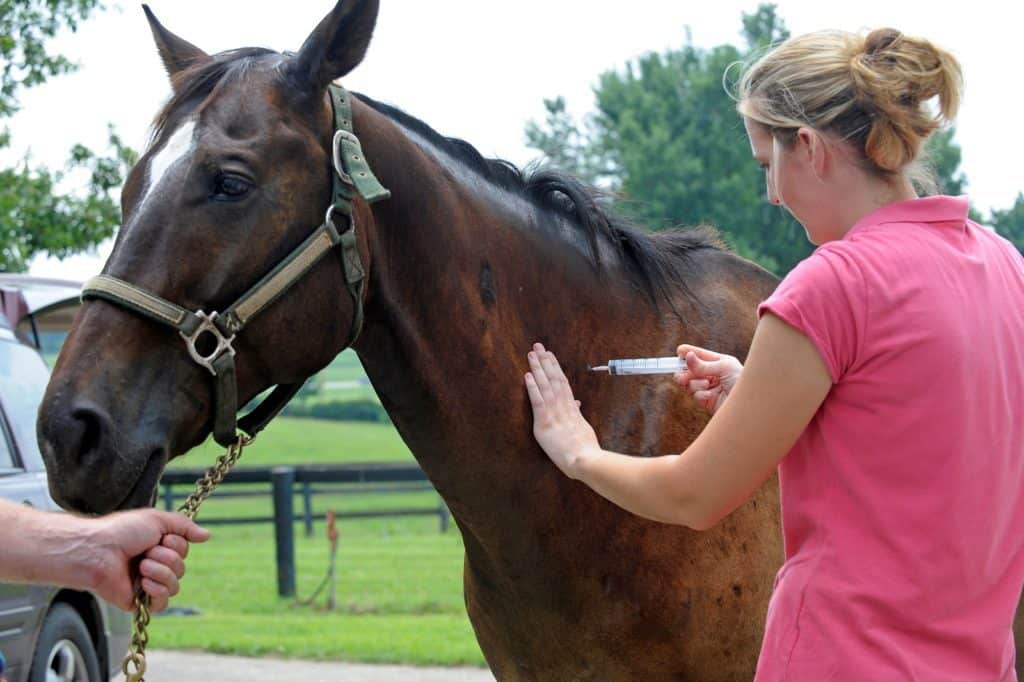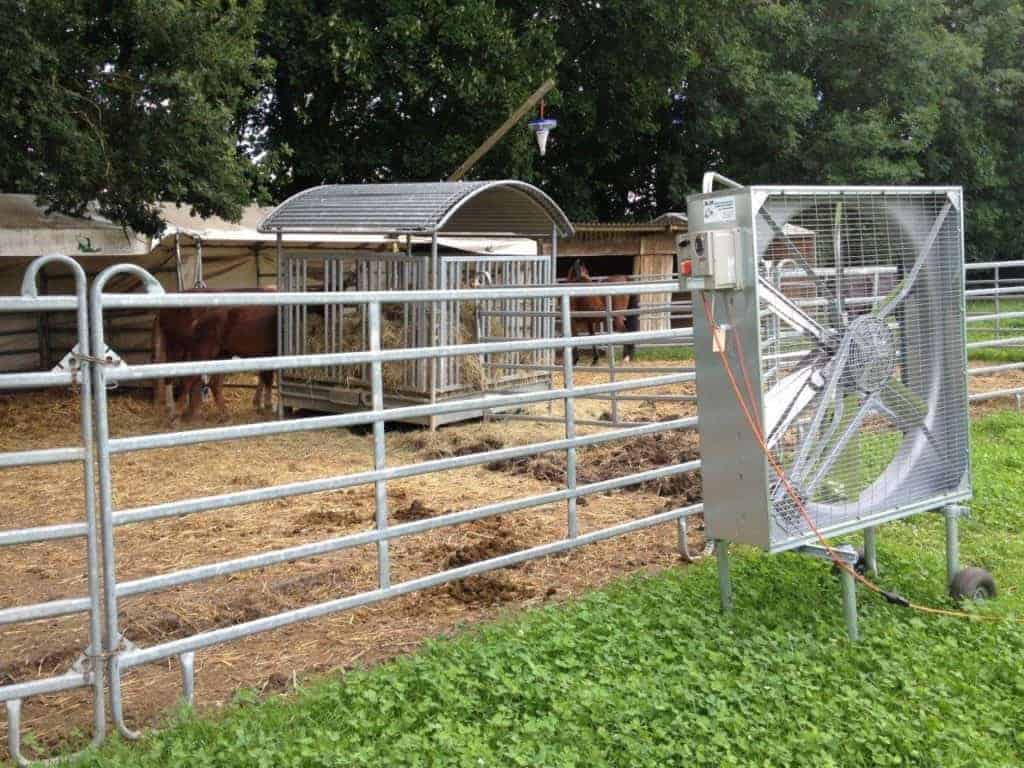
New Mexico Horse Owners Advised to Vaccinate Against WNV
Owners are encouraged to vaccinate their horses prior to the onset of peak mosquito season.

Owners are encouraged to vaccinate their horses prior to the onset of peak mosquito season.

Officials are encouraging vaccination, which has proven to be an effective disease prevention tool.

State officials say now’s the time to vaccinate horses against rabies, Eastern equine encephalitis, and West Nile virus.

Officials advise owners to ensure horses are protected from West Nile virus and Eastern equine encephalitis.

Thirty-six horses in 10 counties tested positive for West Nile virus (WNV) in 2015.

Mites, lice, flies, and mosquitoes can cause irritation to horses and carry dangerous diseases. Be aware of the external parasite species that are in your area and when they are prevalent so you can control them.

Don’t wait to vaccinate horses against diseases including West Nile virus, Eastern equine encephalitis, and rabies.

Discover what diseases your horse can catch from other animals, big and small.

Officials are urging vaccination following high disease rates in Texas horses last year.
Confirmed diseases include vesicular stomatitis, herpesvirus, influenza, Getah virus, and strangles, among others.

Learn about donkeys, leptospirosis, West Nile virus, influenza, preparing for disasters, and working equids.

The affected horses were either unvaccinated or were not up-to-date on their vaccinations.

Here’s a rundown on our arsenal of equine disease-fighting drugs and their proper uses.

Most of the WNV-positive horses had not been vaccinated.

Scientists recently studied fly control methods for horses and determined that mosquito netting and large fans could be the best defense against flying insects.

The horse from the Greenwood community is recovering and expected to survive.
Stay on top of the most recent Horse Health news with
"*" indicates required fields